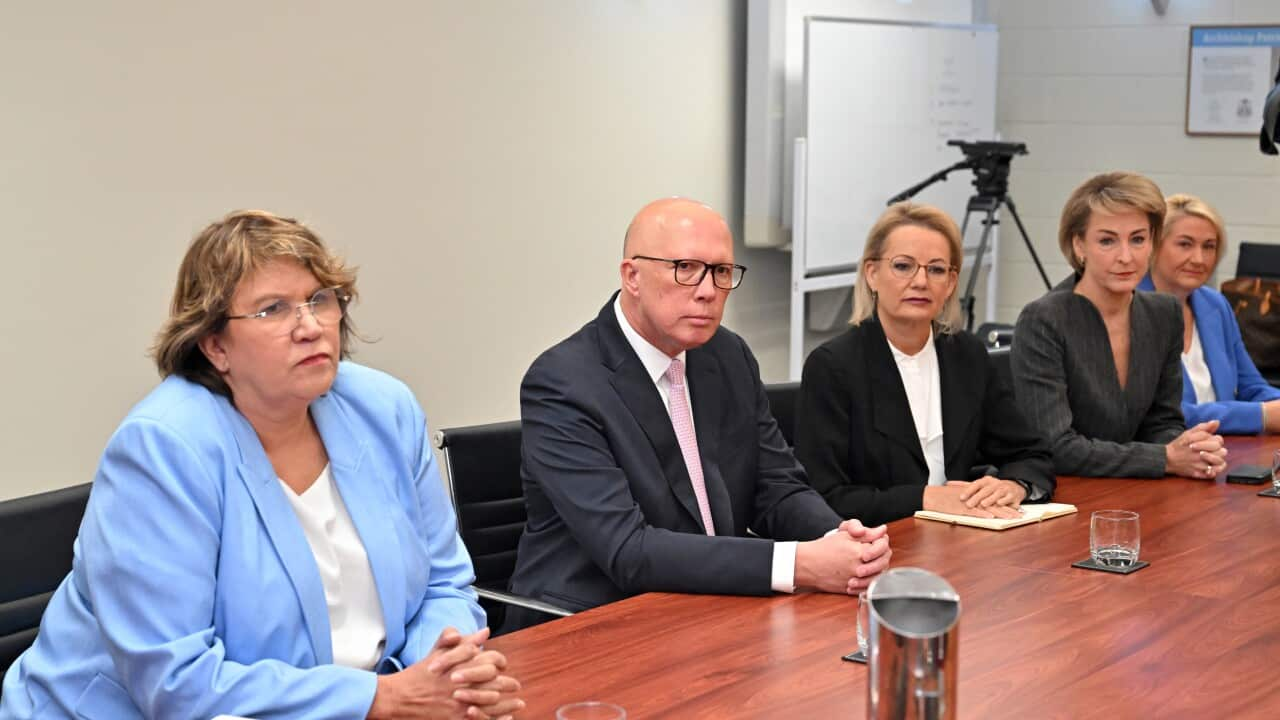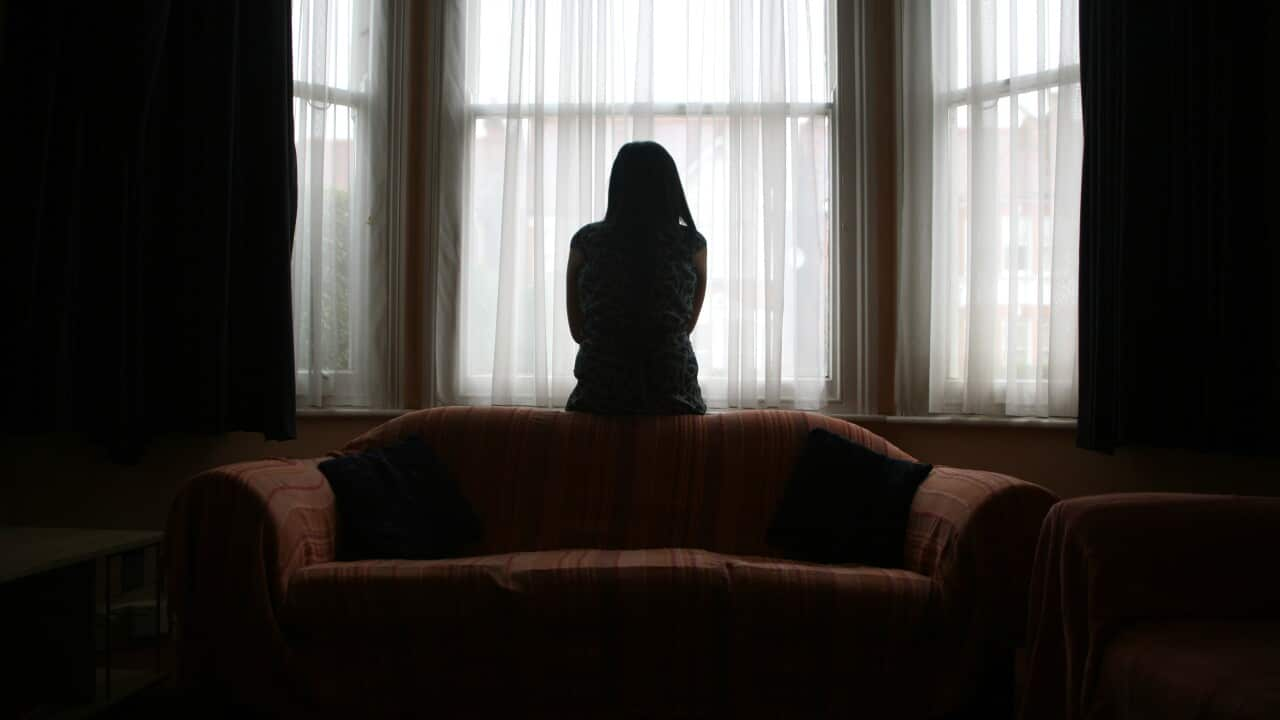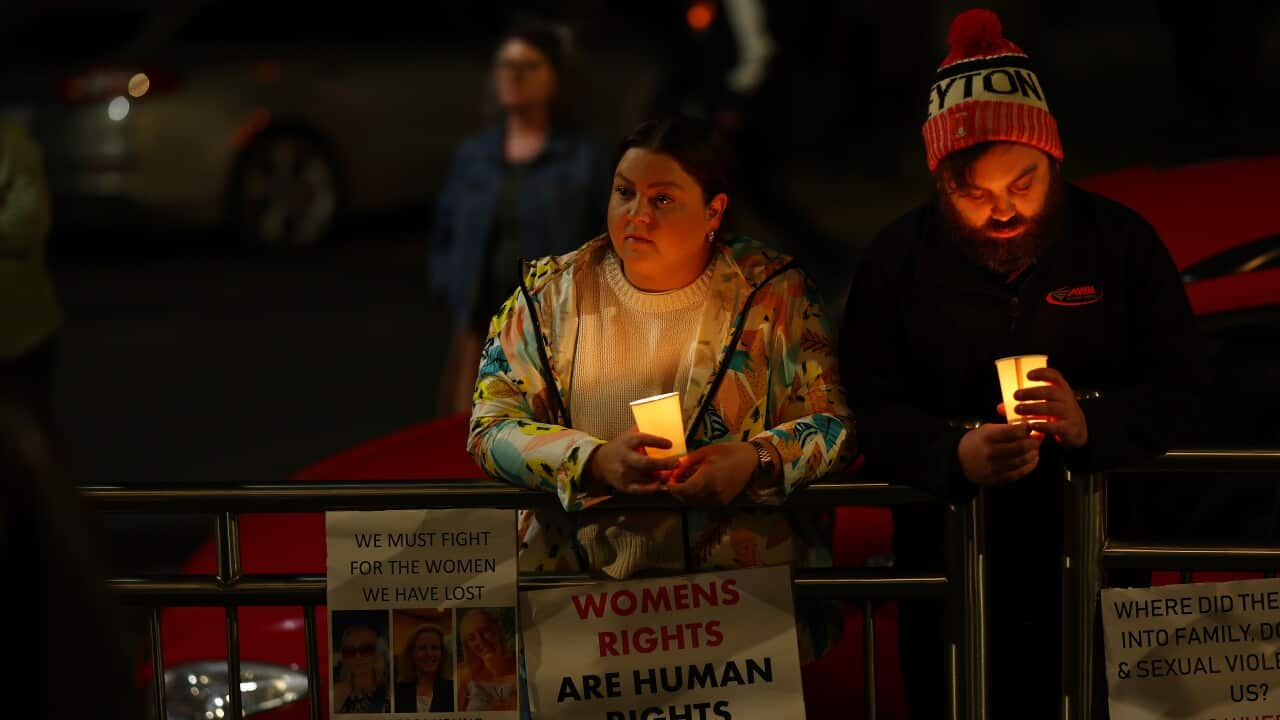The Coalition has joined Labor in announcing its family and domestic violence package, as advocates express disappointment over minimal campaign attention on the issue.
Twenty-three women have been killed so far this year, according to Femicide Watch — a national toll of Australian women killed domestically and overseas, run by journalist and campaigner Sherele Moody.
The Coalition's $90 million announcement includes:
- Implementing a to ensure police and relevant agencies can share information about violent offenders.
- Making it a criminal act to use mobile phones and computer networks to cause an intimate partner or family member to fear for their safety.
- Royal commission into sexual abuse in Indigenous communities.
Announcing the investment, Opposition leader Peter Dutton referenced his time as a police officer, saying his government will focus on "delivering real change".
"As a former police officer, I know the lifelong impact of these crimes," he said in a statement.
"A government I lead will be focused on real change, so that families, women and children are safer and we can end domestic violence."
Deputy Opposition leader Sussan Ley told reporters on Thursday that the funding builds on the Coalition's $3.5 billion investment in addressing family and domestic violence during their government.
"The scourge of family violence reaches into every corner of this country and into every cohort of Australian society. And every time we re-commit to new funding like we did today, we make the statement that enough is enough," she said.
LISTEN TO

Coalition promises funding to combat domestic violence | Morning News Bulletin 24 April 2025
SBS News
06:44
Labor's response to domestic and family violence
It comes after Labor's Minister for Women Katy Gallagher announced on Tuesday her party's commitments to domestic and family violence if re-elected, focusing on financial abuse and violence prevention.
Labor says they will take steps to:
- Preventing perpetrators from using the tax and corporate systems to create debts as a form of coercive control.
- They will make perpetrators accountable for these debts and look at making them liable for social security debts.
- Look at how to stop perpetrators from receiving their victim's superannuation after death.
- Invest $8.6 million in innovative perpetrator responses and intensive behaviour change programs, including electronic monitoring and ankle bracelets on high-risk perpetrators and early interventions for young people.
Gallagher admitted "change is not happening quickly enough", while acknowledging her party's progress on the issue so far.
"It is all too frequent that we see a chilling new headline, reporting on the death of another woman, so often at the hands of a current or former partner," she said.
Funding is a 'drop in the ocean'
Tara Hunter is the director of clinical and client services at Full Stop Australia, a counselling service for those impacted by domestic and family violence.
She said it was great to witness the acknowledgement of the need for increased investment in housing and some of the frontline services, pointing to the Coalition's commitment to expand emergency accommodation and payments for people fleeing domestic violence.
But Hunter said she was "concerned" about the royal commission into Aboriginal child sexual abuse, calling on the elected government to ensure any interventions or initiatives are led by First Nations people.
"They have their own solutions," Hunter said, "[and] if we are going to make some change into the rates of violence against Aboriginal women and children, then we actually need them at the table leading the initiatives".
Phillip Ripper, chief executive of anti-violence organisation No To Violence, said the major parties' funding commitments didn't go far enough.
He said the Coalition's package was "opaque" and failed to address men's use of violence as the root cause of the problem.
He said there was a lack of detail on how the funding would be allocated across initiatives.
"$90 million is a drop in the ocean when we consider the severity of the crisis that's stripping the country at the moment," Ripper said.
"What we have here is a grab bag of initiatives, many of which have nothing to do with family violence."
While acknowledging Labor's commitments to violence prevention, Ripper said the party's $8.6 million announcement was "woefully inadequate".
'We need to tackle family violence at the source'
But Ripper said his organisation was "pleased" to see innovative responses in Labor's announcement, particularly their focus on violence prevention.
"We welcome the government's focus on engaging men around the use of family violence," Ripper said.
"We need to tackle family violence at the source."
He said it was important to "disrupt pathways into violence", pointing to Labor's early intervention programs for men and young boys.
"We also know that not all children who grow up in family violence go on to perpetrate family violence, but we know a large number do," Ripper said.
"And we need to keep developing programs and interventions to work with different men at different stages of their journey of change."
LISTEN TO

Party Time: The Players
SBS News
29:05
But there is ongoing concern around sustained funding for frontline services, Hunter said.
She welcomed Labour's efforts to address financial abuse, but said it cannot be a "piecemeal approach".
"They actually need a front door into services that might actually give them information about financial abuse and where they can go for support," she said.
Politicians were 'disappointingly quiet'
There has been widespread criticism of the major parties from advocates about their virtual silence on the issue of sexual, family and domestic violence before these announcements.
No To Violence, which focuses on changing men's behaviours, hosted an online forum last week with a panel of politicians from the major parties, the Greens and independents.
It asked politicians to outline their parties' policy commitments on the issue.
Ripper said he's "deeply concerned" to see a "lack of focus on this national crisis".
"We have seen more women murdered at the hands of men in the last week, and yet the silence has been deafening," he said.
Hunter said politicians had been "disappointingly quiet" on this national emergency during the first weeks of the .
"I actually don't understand it, I think this time last year there was a national crisis meeting called," she said.
"If we want to [end gender-based violence in one generation], there needs to be really consistent effort around sustained resourcing and funding."
Karen Iles, a solicitor and advocate for victim-survivors of sexual assault and domestic violence, said it was "surprising" to see minimal attention on violence against women and children over the election campaign.
"It is interesting that issues of domestic family and sexual violence are low on the agenda.
"I'm sure that women would vote for a party that came forward with a really strong platform about what they're going to be doing to make sure that men and boys who perpetrate violence against women are held to account, not just by our society, but held to account by the law."
Visit the to access articles, podcasts and videos from SBS News, NITV and our teams covering more than 60 languages.






